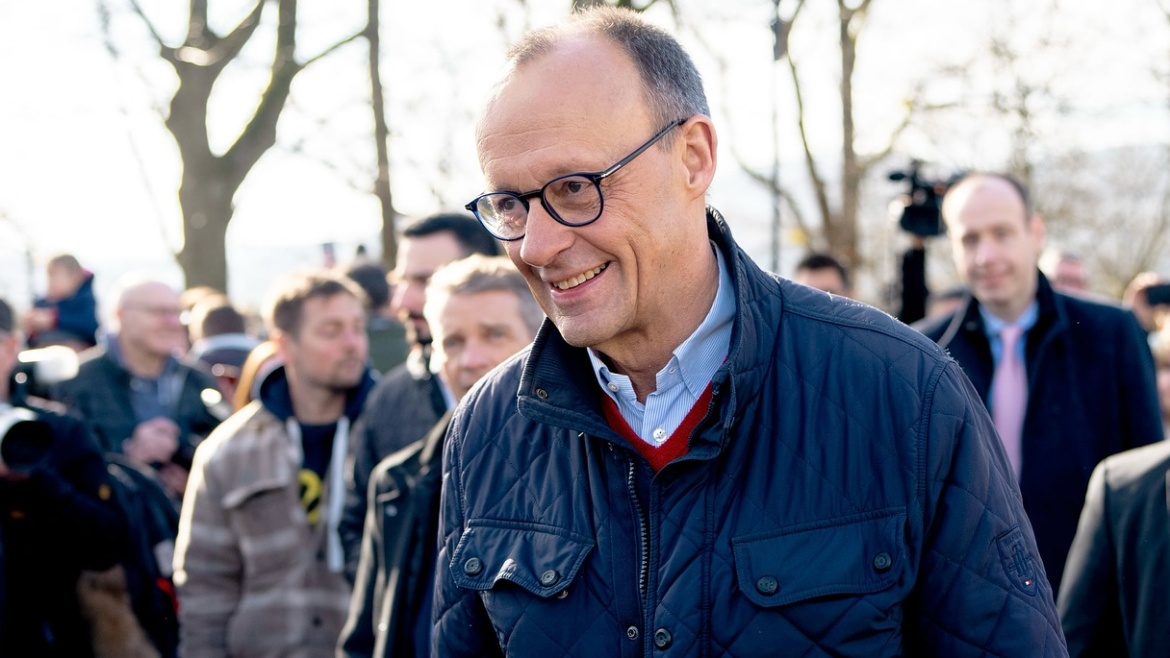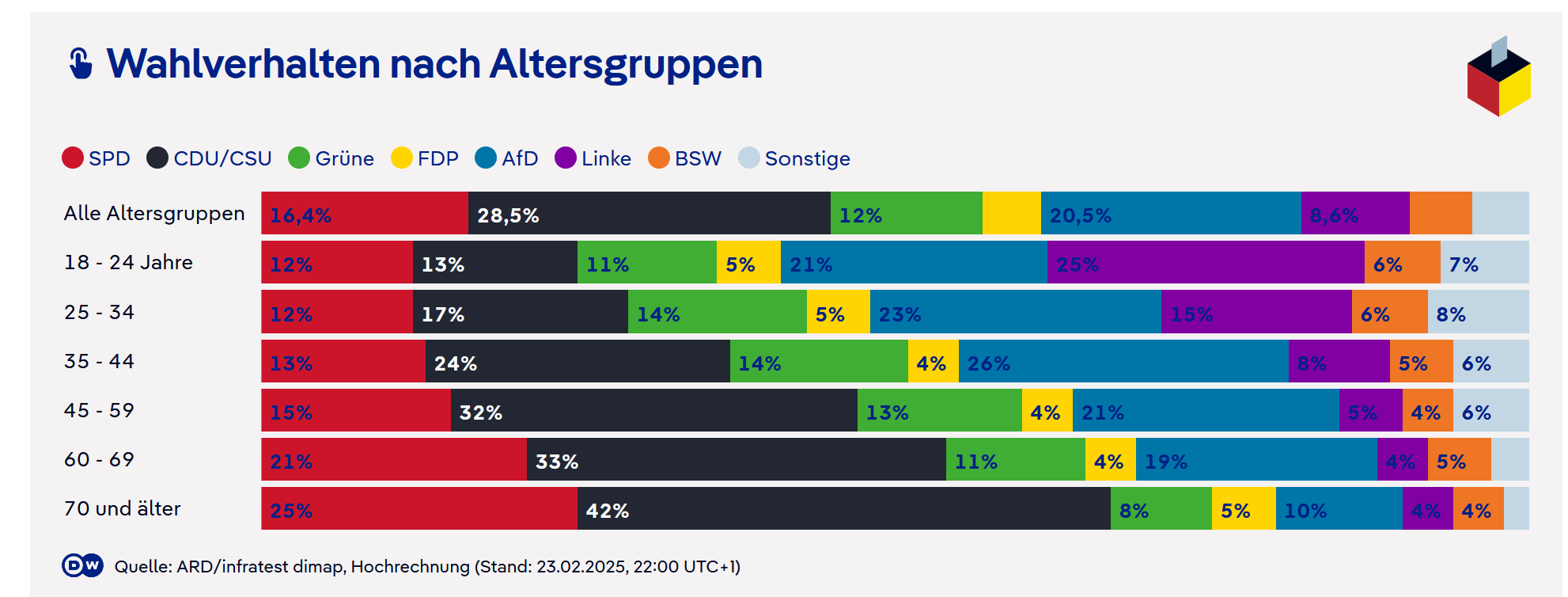Germans vote en masse and Merz will lead a more conservative government
An 83% turnout demonstrates the strength of a democracy that will have to get used to having the far right as a protagonist in parliament.
BERLIN · 24 FEBRUARY 2025 · 10:12 CET

There were no surprises and the polls were right. Although the far right AfD doubled its representation, it was Friedrich Merz's conservatives who were the clear winners on a night that saw the downfall of the previous chancellor, Olaf Scholz.
The CDU-CSU did not achieve a majority (28%) but won clearly in the south and west, where there is a larger population. The Conservatives staked everything on an improvement in the economy and a tougher approach to immigration. For their part, the Social Democrats suffered their worst result in democracy (16%) and will fulfil their promise to facilitate a stable government that will veer to the right, returning to Germany’s model of ‘grand coalitions’.

Alice Weidel, the leader who lives in Switzerland with her lesbian partner but who paradoxically has become the standard-bearer for German patriotism and traditional values, has achieved a historic result by doubling Alternative for Germany’s vote share to become the second force (from 10% to 20% in just 3 years). The far-riht option won clearly throughout eastern Germany (except in Berlin) and beat the conservative Merz in all young age groups across the country up to 45 years old.

Vote in the German federal election of 2025 by age groups. / Graphic: Deutsche Welle With the disappearance of the moderate liberals (FDP), the decline of the Greens and the rise of the radical left, the German federal parliament (Bundestag) is likely to experience more tense times.
However, the joint work of the two main parties on the right and left, both with strong pro-European convictions and united by their support for Ukraine and rejection of the new Trumpism, could facilitate the desired stability. That is, of course, if Merz and Scholz manage to not repeat the failure of coalition government.
The position of Christians
The Protestant and Catholic Churches and two dozen other Christian denominations (from Orthodox to Baptist) called on their members to raise their voices for democracy in Germany and vote for parties that showed Christian compassion, in a clear plea against the AfD.
Among evangelical Christian voters, there are differences of opinion. Some consider the AfD the only non-woke option that publicly defends certain Christian values. Others consider that its xenophobic and ultranationalist overtones bring it too close to the country's Nazi past.
Frank Heinrich, of the German Evangelical Alliance, expressed the need for honest and respectful conversations in the midst of the societal polarisation, helped by social media. He also called committed Christian to analyse the candidates’ character, beyond simple campaign slogans.
A German journalist told Evangelical Focus that Germany looked exhausted and had “lost its faith in progress”.
Join us to make EF sustainable
Learn all about our #TogetherInThisMission campaign here (English).
Published in: Evangelical Focus - europe - Germans vote en masse and Merz will lead a more conservative government
